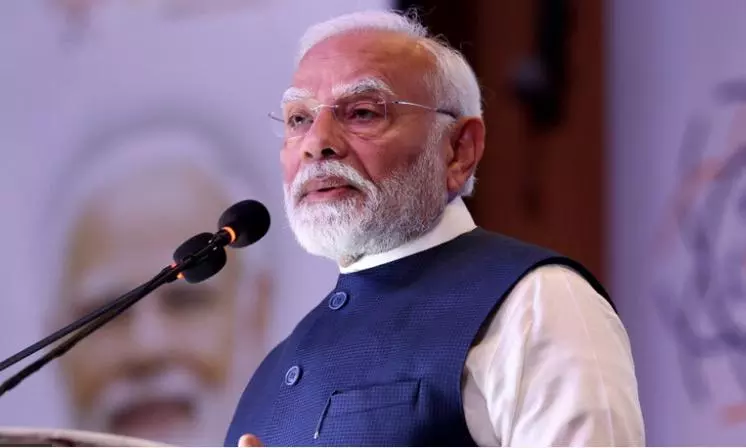
Nikkhil Advani 's Freedom At Midnight traces the days leading up to the India-Pakistan partition in 1947, and he says he was prepared to receive polarising feedback for the series which tries to turmoil inside the political rooms. ( Also read : Freedom at Midnight review: Nikkhil Advani's sprawling, layered show is India's answer to The Crown ) Vivek Agnihotri criticised Nikkhil for allegedly "whitewashing" history in the series, which streams on SonyLIV, accusing him of distorting the truth. In an interview with Hindustan Times, before the release of the show, he talks about it all.
On mixed response to show Freedom at Midnight is an epic political thriller that vividly captures the dramatic and defining events surrounding India's independence in 1947. The show stars Sidhant Gupta as former Prime Minister Jawaharlal Nehru in the lead. It is about the struggle for independence and the religious and socio-political dynamics of the era and closely looks at the partition.

“When you are making something like Freedom At Midnight, there will be opposing points of view,” Nikkhil tells us, adding, “I'm sure there are experts who know more about the partition and days leading to independence. And they will have some point of opinion”. Here, he asserts, “What we have tried to do is just stick to the events that took place between August 16, 1946 to January 30, 1948, which are indisputable.
These events took place in history. We have just followed events and tried to take the audience into those rooms”. Mention the tweet by Vivek criticising the filmmaker for allegedly not depicting the history with full honesty.
And Nikkhil is quick to note, “He has not seen the show, the trailer. He has not seen anything (about the show). He has just an article from a magazine and shared the tweet”.
On trying to balance the narrative The series explores the split between India and Pakistan. That being said, Nikkhil has ensured a balanced narrative, as the maker stresses that it was more about capturing the harrowing pain of the tragic chapter of Indian history. “There's only one side here.
And it is that the partition was horrible and it should never have happened. People were torn apart, and friends were apart. There is no other side,” says the Kal Ho Naa Ho director.
He adds, “It was that this is a good side and this is a bad side. It was just horrible. My grandparents were part of that.
I'm a second-generation refugee...
Although I was born in 1971, my grandparents spoke about the times.. I have heard some of the saddest and tragic stories .
.. It is indisputable that partition was a very tragic consequence.
It is our history now” The series also features Chirag Vohra as Mahatma Gandhi, Rajendra Chawla as Sardar Vallabhbhai Patel, Arif Zakaria as Muhammad Ali Jinnah, Ira Dubey as Fatima Jinnah, Malishka Mendonsa as Sarojini Naidu, Rajesh Kumar as Liaquat Ali Khan, KC Shankar as V.P. Menon, Luke McGibney as Lord Louis Mountbatten, Cordelia Bugeja as Lady Edwina Mountbatten, Alistair Finlay as Archibald Wavell, Andrew Cullum as Clement Attlee, and Richard Teverson as Cyril Radcliffe.
On whether there are plans to expand the story The show is based on Dominique Lapierre and Larry Collins's book of the same name. During the conversation, we ask him if there are plans to create it into a franchise, and Nikkhil dismisses the idea. “Not at all.
It is based on the book. The show has a definite end. That was very clear from the start.
Whenever I embark on telling a story, I need to know what the end is. If I can't see the end, then I'm not going to begin,” he clarifies. Talking about adapting the series from the book, the filmmaker shares, “As a young boy, I loved the book.
I always wanted to figure out why nobody else tried to make this into some kind of a project...
It was a no-brainer for me, and that's how the journey started.”.













